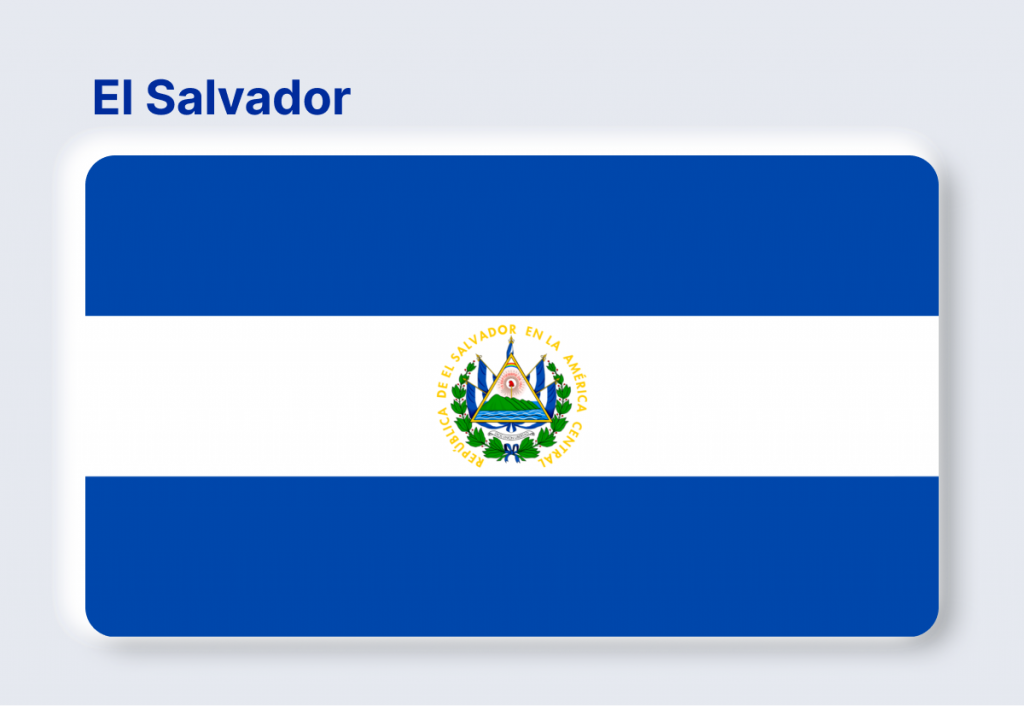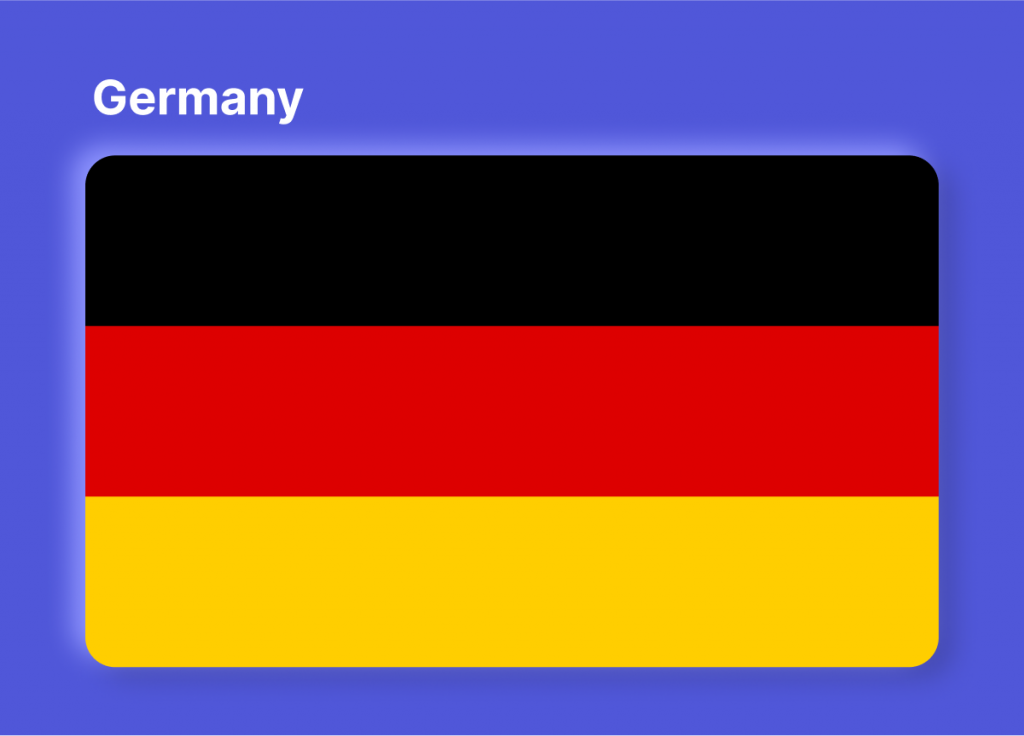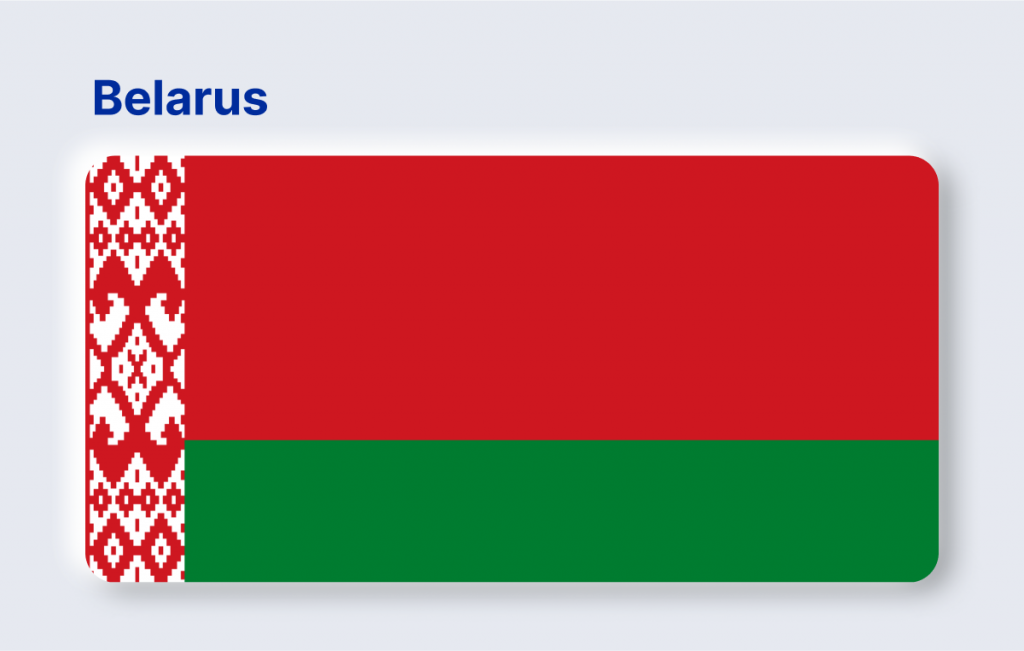10 Most Crypto-Friendly Countries in 2024
2023 has been a monumental year for the industry. Bitcoin made a strong comeback after a rough “crypto winter” of 2022, with significant price improvements throughout the year. And the future is looking even more promising as 2024 brings the highly anticipated Bitcoin halving event.
At the same time, 2023 has also seen governments and regulatory bodies around the world taking steps towards developing clear regulations for cryptocurrencies, with approval by the EU Parliament of Europe’s Markets in Crypto-Assets (MiCA) Regulation being a major milestone.
But which countries are leading the way in creating a friendly environment for crypto businesses and investors? This article will look at 10 of the most crypto friendly countries in 2024 and their policies that make them attractive for the industry.
Key Takeaways:
- The most crypto friendly countries in 2024 are those that have taken steps to create clear regulations and a welcoming environment for crypto businesses and investors.
- The list of countries that support the crypto industry includes Switzerland, El Salvador, Singapore, Portugal, Malta, Bermuda, Germany, Slovenia, Belarus, and others.
- The year 2023 has brought significant developments in the global regulatory landscape for cryptocurrencies.
Switzerland: The Crypto Valley of Europe

Switzerland has established itself as a global leader in fostering a supportive environment for cryptocurrencies and blockchain technology. Known as the “Crypto-Valley of Europe,” Switzerland is a major innovation hub for the crypto industry. The Swiss Federal Tax Administration recognizes crypto transactions as similar to traditional fiat transactions, exempting them from tax reporting.
One of the primary reasons why Switzerland is considered a crypto-friendly country is its lenient taxation policies. Individuals in Switzerland are generally not taxed on their income or capital gains from cryptocurrencies unless they are classified as professional traders. However, wealth tax is imposed on individuals holding cryptocurrencies at the end of the year, with rates varying across different cantons.
Switzerland’s reputation as a cryptocurrency-friendly jurisdiction is further solidified by the fact that many major crypto projects have chosen the Swiss as their home, including Ethereum and Tezos. With its favorable tax policies, supportive regulatory framework, and innovative ecosystem, Switzerland continues to attract crypto enthusiasts and businesses alike.
El Salvador: Embracing Bitcoin as a Legal Tender

El Salvador made history by becoming the first country to recognize Bitcoin as legal tender. In an effort to attract foreign investors, El Salvador has implemented tax exemptions for Bitcoin profits, exempting them from capital gains or income tax.
While the legal framework to enforce these tax exemptions is still being developed, El Salvador’s pro-Bitcoin stance has garnered praise from the crypto community, positioning the country as one of the most crypto-friendly destinations. This makes El Salvador one of the top crypto countries in the world.
Singapore: A Fintech Hub with Crypto-Friendly Policies

Singapore has emerged as a leading player in the cryptocurrency industry thanks to its welcoming regulatory environment and pro-business stance. As one of the most developed economies in the world, Singapore has positioned itself as a fintech hub, attracting crypto organizations and investors from around the globe.
Crypto tax Singapore policy is one of the key advantages of the country, as it provides exemption of income and capital gains from cryptocurrencies for individuals. However, companies based in Singapore that operate as crypto trading companies or accept cryptocurrency payments are still subject to income tax.
Singapore is renowned for its cryptocurrency-friendly environment, supported by a robust regulatory framework. The city-state not only embraces cryptocurrencies and blockchain technology but also provides comprehensive guidelines for its operations. This regulatory clarity extends to tax laws, offering exemptions for specific digital tokens. Thus, Singapore is considered one of the top options among crypto tax free countries.
Portugal: A Haven for Cryptocurrency Enthusiasts

Portugal has become a surprising leader in the world of cryptocurrencies, offering a haven for digital currency enthusiasts and entrepreneurs. With its attractive tax policies, supportive regulatory environment, and innovative initiatives like the regulatory sandbox, Portugal has attracted individuals and businesses looking to be part of a thriving crypto ecosystem.
The country’s unique categorization of cryptocurrencies as movable property has made it exempt from value-added tax (VAT), providing relief to crypto traders and users. Additionally, Portugal’s crypto-friendly tax regime, which does not impose income or capital gains taxes on Bitcoin transactions, has further cemented its reputation as a cryptocurrency hotspot.
Moreover, Portugal’s forward-thinking approach to regulation has created a conducive environment for blockchain innovation. The regulatory sandbox allows crypto startups to test and develop their products without facing unnecessary barriers, demonstrating the country’s commitment to fostering technological advancement. Today, Portugal ranks as one of the top options in the list of crypto friendly countries.
Malta: The Blockchain Island of Europe

Malta, often referred to as the “Blockchain Island of Europe,” has made significant strides in fostering a crypto-friendly environment. The country’s comprehensive set of regulations and laws, unveiled in 2019, have created a secure and inviting space for crypto businesses and investors.
While Malta does not entirely exempt cryptocurrencies from taxation, it offers an equitable tax regime. Income and capital gains from cryptocurrencies may be subject to an income tax rate of up to 35%. However, non-residents of Malta enjoy a significantly lower tax rate of just 5%, making it an attractive destination for international investors.
Malta’s commitment to supporting blockchain innovation is further demonstrated through its financial incentives and supportive infrastructure. The island nation offers reduced corporate tax rates and the potential for refunds on dividends, attracting crypto businesses and promoting the growth of the crypto ecosystem.
Bermuda: A Tax-Friendly Destination for Crypto Investors

Bermuda has carved out a unique position in the crypto industry as a tax-friendly destination for investors and businesses. The country’s progressive regulatory approach and lack of income and capital gains taxes make it an attractive location for those seeking a favorable financial environment.
In 2018, Bermuda made history by becoming the first country to accept taxes and fees in cryptocurrency, further solidifying its reputation as a crypto-friendly jurisdiction. The government’s forward-thinking approach has attracted attention from crypto enthusiasts and investors, with many choosing to establish their businesses in Bermuda.
Additionally, the country’s Digital Asset Business Act provides a clear regulatory framework for digital assets, making it an ideal location for crypto businesses to thrive.
Germany: A Progressive Approach to Cryptocurrencies

Germany has established itself as a pioneer in the cryptocurrency space with a progressive and forward-thinking approach to digital assets. The country’s Ministry of Finance first recognized Bitcoin as a “unit of account” back in 2013, laying the foundation for its legal status in Germany.
One of the key aspects that make Germany stand out as a crypto-friendly country is its lenient taxation policies. Individuals holding cryptocurrencies for more than a year generally enjoy tax-free profits, with no taxes imposed on earnings below 600 Euros. This approach has created a favorable tax framework and encouraged participation in the digital asset space.
Moreover, Germany has implemented stringent regulations to combat fraud and money laundering, prioritizing the safety and security of cryptocurrency users and investors. By addressing potential risks and enforcing strict compliance standards, Germany demonstrates its commitment to fostering a secure and open cryptocurrency industry.
Slovenia: Attractive Tax System for Digital Assets

Slovenia may be a small country, but its progressive approach towards cryptocurrencies is attracting attention from investors and businesses alike. The country’s laws currently exempt individuals from capital gains tax when selling Bitcoin, classifying these gains as non-taxable income. However, companies that receive crypto payments are subject to corporate income tax.
ICOs are also subject to taxation in Slovenia, making it essential for companies to comply with the country’s legal framework. While Slovenia doesn’t allow businesses to conduct solely crypto transactions, such as accepting bitcoin as the only means of payment, other activities involving cryptocurrencies, like mining, are subject to a 25% income tax.
Belarus: A Crypto-Based Digital Economy

Amidst the rapidly evolving crypto landscape, Belarus has positioned itself as a promising destination for cryptocurrency businesses and investors. In 2017, its government passed a law that legalized cryptocurrencies and exempted individuals and businesses from crypto taxes until 2023.
In addition to its favorable tax policies, Belarus also offers other incentives for crypto businesses. These include a special economic zone called “Hi-Tech Park,” which provides benefits such as preferential taxation and simplified visa procedures for foreign employees. The country’s focus on technological innovation has led to the development of a strong IT sector, making it an ideal location for crypto businesses to thrive.
Despite being a relatively small country, Belarus is making significant strides towards becoming a leading player in the crypto world. The country’s proactive approach towards embracing cryptocurrencies and blockchain technology could serve as a model for other nations looking to enter the world of digital currencies.
Netherlands: Developing a Regulatory Environment for Crypto

The Netherlands may not be as well-known as Switzerland or Singapore in the cryptocurrency industry, but the Dutch government has been actively working towards developing a regulatory environment for crypto. In 2020, the Dutch Central Bank (DNB) announced that it would start supervising cryptocurrency service providers to combat money laundering and terrorist financing.
Despite this development, there are currently no specific laws or regulations governing cryptocurrencies in the Netherlands. However, the Dutch government has stated its intention to bring cryptocurrency activities under the supervision of financial regulators and implement measures to protect investors.
The tax treatment of cryptocurrencies in the Netherlands is also evolving, with clear guidelines for VAT exemptions on mining activities and inheritance tax implications for inheritors.
Crypto Regulation in 2024
The year 2023 has brought significant developments in the global regulatory landscape for cryptocurrencies. Let’s explore the key regulatory moves happening in different regions.
European Union’s MiCA Regulation
In an effort to provide regulatory clarity and foster innovation in the crypto industry, the EU has introduced the Markets in Crypto-Assets (MiCA) Regulation.
MiCA sets out a comprehensive and enforceable regulatory framework for cryptocurrencies across the EU. This regulation aims to establish clear guidelines for crypto firms and promote investor protection. MiCA is expected to come into force between mid-2024 and early 2025, providing a much-needed boost to the European crypto market.
United States’ Pursuit of Comprehensive Regulation
The United States has become a focal point for crypto regulation as major markets worldwide take steps to govern the crypto space.
In early 2022, the Biden administration expressed support for stablecoin regulation and the need to protect consumers in the digital asset space. State and federal-level regulatory agencies have been using existing legal frameworks to govern digital asset activities.
However, there is currently no comprehensive regulatory structure for digital assets in the U.S. One crucial aspect that may be clarified in 2024 is the authority responsible for enforcing regulations across the domestic crypto space. Once this responsibility is defined, the U.S. can make progress towards consistent and enforceable nationwide regulation, aiming to remain competitive in the rapidly emerging crypto industry.
Hong Kong’s New Licensing Rules
2023 is a significant year for crypto regulation in Hong Kong. Starting from June 1, new rules require all virtual asset service providers to obtain a license from the Securities and Futures Commission.
These regulations aim to enhance consumer protection and combat money laundering by mandating that exchanges outline their plans to address these issues. The introduction of regulations in Hong Kong sparks discussion about the future of crypto in the region, as Chinese law prohibits financial institutions and payment companies from offering cryptocurrency services.
Britain’s Ambition to Become a Global Hub
The British government has set ambitious goals to position the United Kingdom as a global hub for cryptocurrencies and digital assets. To achieve this, the UK has already taken steps to regulate stablecoins as recognized forms of payment.
The government unveiled plans to more strictly regulate the crypto industry. One particular area of interest is tighter controls around crypto lending to ensure stricter due diligence among intermediaries.
Dubai’s Vision for the Virtual Economy
In 2023, Dubai’s Virtual Asset Regulation Authority (VARA) announced new guidelines regulating the trading of virtual assets in the city. These guidelines require companies offering crypto-related services to obtain mandatory licenses, ensuring a regulated and secure environment for investors.
VARA’s regulations consist of four rulebooks for service providers and seven activity-based rulebooks governing the types of services offered. As Dubai continues to refine its guidelines, it is poised to strengthen its position as a global and regional hub for cryptocurrencies.
Conclusion
As the world of crypto continues to develop, more and more countries recognize the potential of cryptocurrencies and blockchain technology. Each country on the list has its unique advantages, making them attractive destinations for individuals and businesses seeking to engage in the world of cryptocurrencies.
Disclaimer: This article provides educational content and does not constitute a solicitation to buy or sell digital assets. The trading and holding of digital currencies involve risks and may fluctuate greatly. It is essential to consider your financial condition and consult with legal, tax, and investment professionals for advice tailored to your specific circumstances.
FAQs
What is the cheapest country to mine Bitcoin?
According to CoinGecko’s research, the cheapest countries to mine Bitcoin are Lebanon (only $266 is needed to produce 1 BTC there in 2023), Iran, Syria, and Ethiopia. These countries have the lowest electricity costs for mining cryptocurrency. On the other hand, Italy has the highest mining costs.
Which European country is the most crypto-friendly?
Slovenia is often considered to be the most crypto-friendly country in Europe. Not only does it have a flourishing blockchain industry, but it also has the highest market capitalization of crypto and other blockchain projects per capita.
What country has the highest use of cryptocurrency?
According to Statista’s Consumer Insights, as of 2023, Nigeria and Turkey have the highest percentage of people who either own or use cryptocurrencies, with both countries tied at 47%. The United Arab Emirates and Indonesia follow closely behind with 31% and 29%, respectively.



